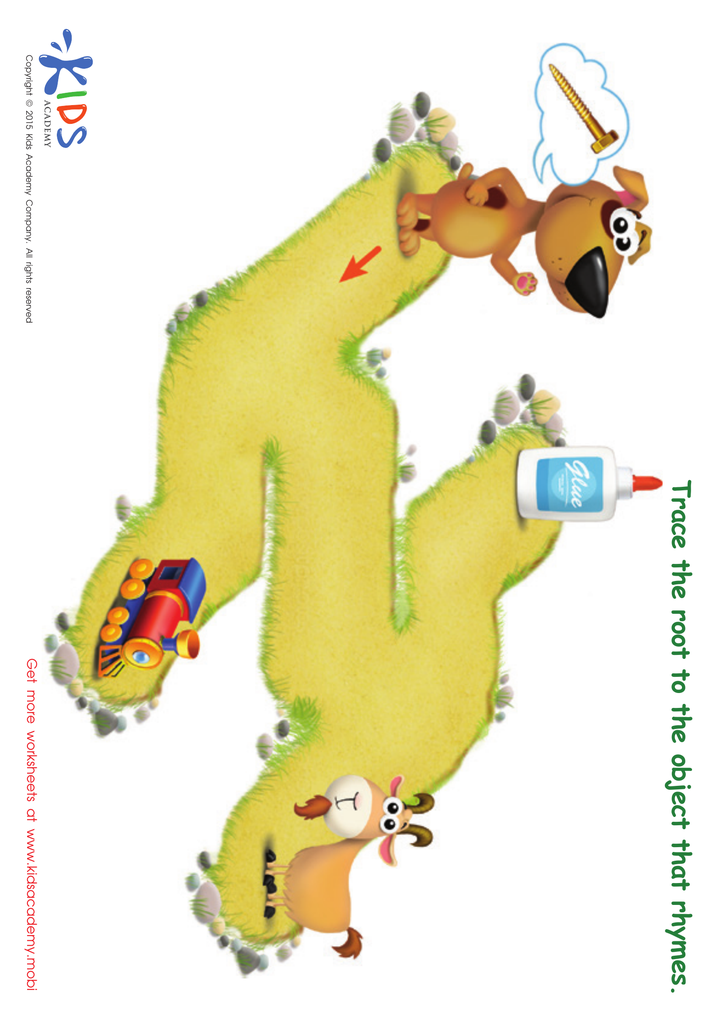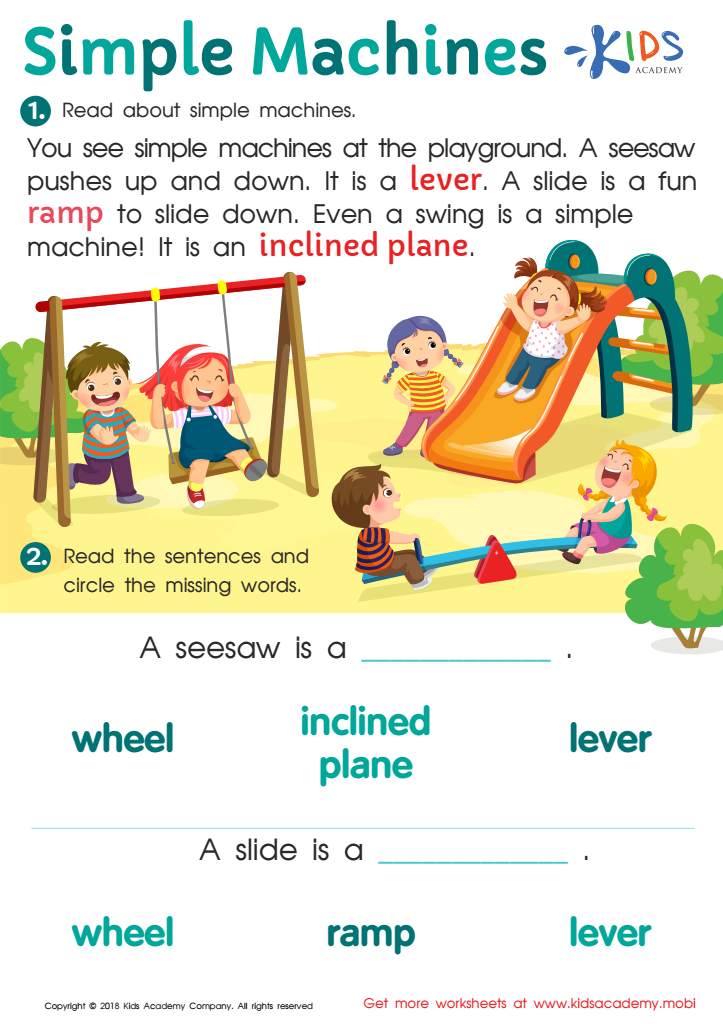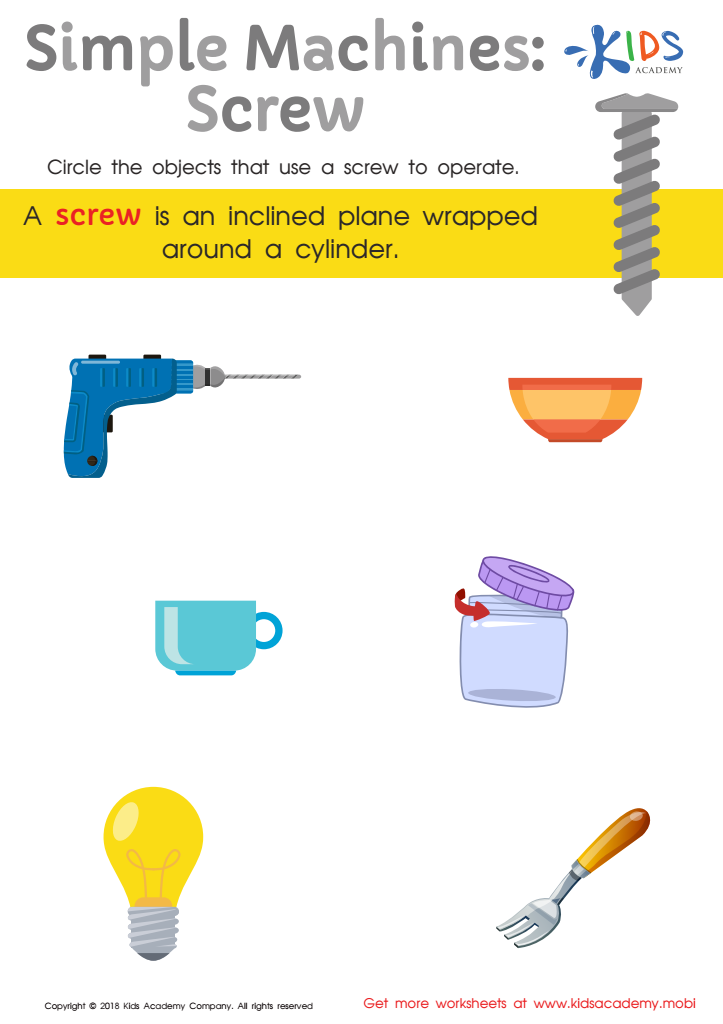Understanding Simple Machines Reading Worksheets for Ages 4-8
3 filtered results
-
From - To
Discover our engaging "Understanding Simple Machines" reading worksheets designed for children ages 4-8! These resources make learning fun while introducing young learners to basic concepts of simple machines. With colorful visuals and age-appropriate language, these worksheets help build literacy skills while exploring levers, pulleys, inclined planes, and more. Each activity is tailored to spark curiosity and promote critical thinking, ensuring that kids grasp the fundamental principles of how these machines work in everyday life. Perfect for classroom or home use, our worksheets foster a love for reading and science, providing an exciting path to hands-on learning. Start your adventure today!




Simple Machines Worksheet


Simple Machines: Screw Worksheet
Understanding simple machines is crucial for children aged 4-8 as it lays the foundation for their comprehension of basic physics and engineering concepts. By engaging with this topic, young learners can explore the fundamental mechanisms that make work easier, including levers, pulleys, inclined planes, wedges, screws, and wheels. Integrating simple machines into early childhood education invites hands-on experimentation and creative problem-solving, crucial skills that foster cognitive development.
Parents and teachers should prioritize this subject as it connects abstract ideas to tangible experiences, enhancing critical thinking and intellectual curiosity. As kids build and interact with simple machines, they develop fine motor skills and improve their ability to collaborate and communicate with peers. Additionally, simple machines are prevalent in everyday life, making this knowledge relevant and practical, which encourages children to observe and question the world around them.
By nurturing an understanding of simple machines early on, educators can ignite a lifelong interest in science, technology, engineering, and mathematics (STEM) fields. Ultimately, exposing young learners to such concepts supports holistic development, setting them on a path for academic success and instilling confidence in their problem-solving abilities. Thus, awareness and exploration of simple machines is vital in early education.

 Assign to My Students
Assign to My Students




.jpg)














